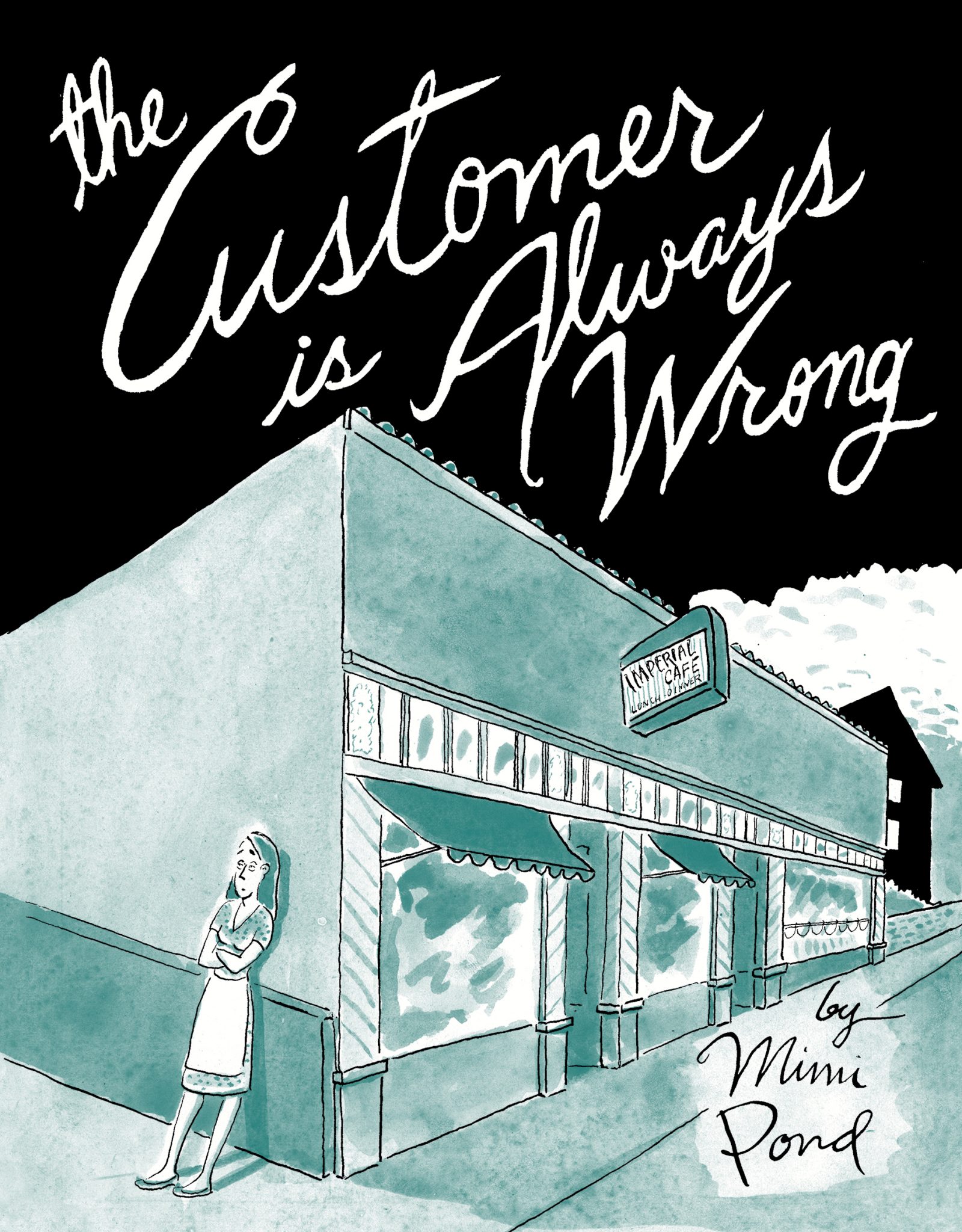
The Customer is Always Wrong
Mimi Pond, 448 pgs, Drawn and Quarterly,drawnandquarterly.com, $29.95
Mimi Pond is something of legend in cartooning and underground comics, having written a number of influential graphic novels, and being one of few women to reach early prominence in the alternative comix scene. Though she briefly wrote for The Simpsons in its early days, Pond has consistently stayed true to her humble roots as a somewhat scrappy, somewhat wacky storyteller and illustrator.
The Customer is Always Wrong is the second, even weightier installment in Pond’s series of memoirs about life as a waitress in a diner straddling the wrong and wronger sides of town in 1970s Oakland. While it was never clear how much of the narrative is fictionalized or exaggerated, this book is even more cinematically unbelievable as the previous one, the much acclaimed Over Easy. Told entirely in splotchy shades of seafoam and black linework, Pond’s signature style feels, like much of the lingo and cultural zeitgeist belying the book, irrevocably tied to a particular place and time.
The book follows the continued adventures of Madge, whose aspirations of being a great cartoonist, despite glimmers of success, are constantly foiled or, at best, put on hold, by the outrageous shenanigans of her motley crew of co-workers. Piles of cocaine and heroin thrust the plot forward and wreak a series of unruly situations upon the well-intentioned but ultimately flawed cast. There’s Camille, the deceptively sweet looking blonde; Neville, her dead-beat boyfriend; Babette, a black trans-woman and the only person with much sense; and Lazlo, the anarchist-poet manager of the diner and the driving conscience of the novel.
There isn’t exactly a central narrative arc, but rather episodic trials and tribulations that add up to a fun, gonzo, and occasionally moving look into Oakland in the 70s. While Pond does sometimes indulge in unflattering caricatures or stereotypes, there is a general ethic at play throughout the book suggesting that, however uncomfortable or messy it can be, building relationships across social difference is at the heart of a functioning community, no matter how small. If you liked the first book, or even if you never got a chance to read it, you’ll likely agree that Pond is onto something.
